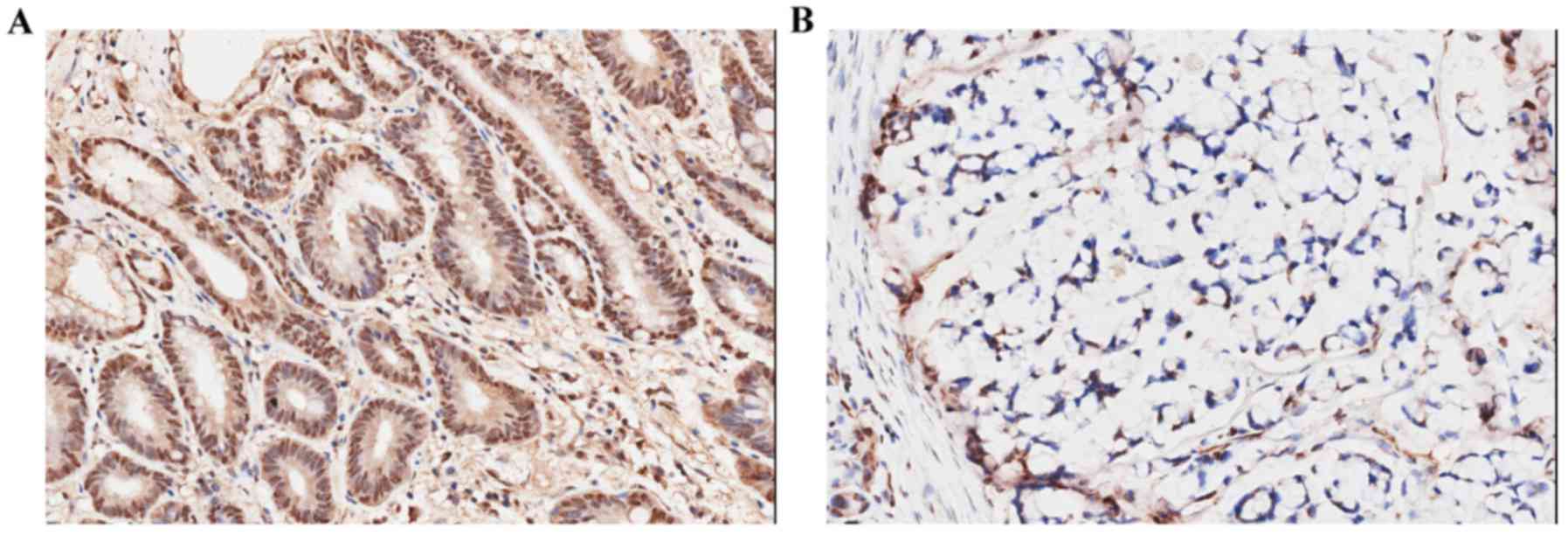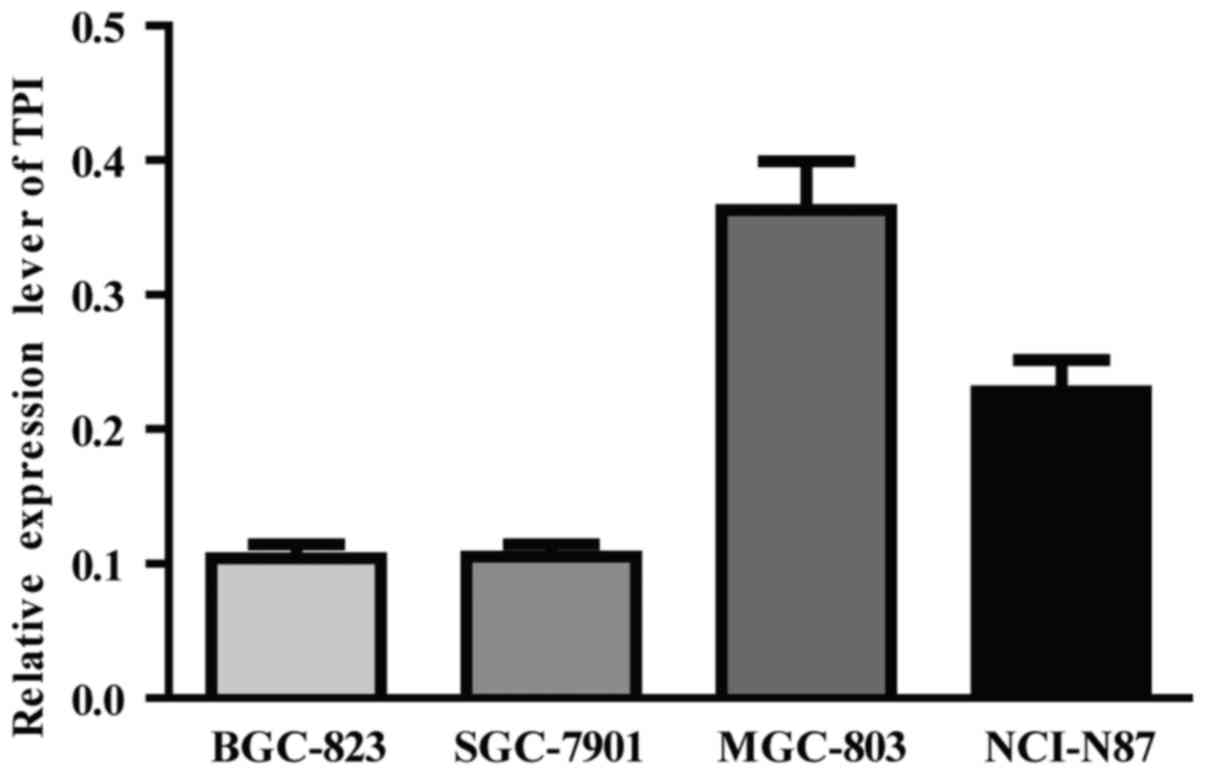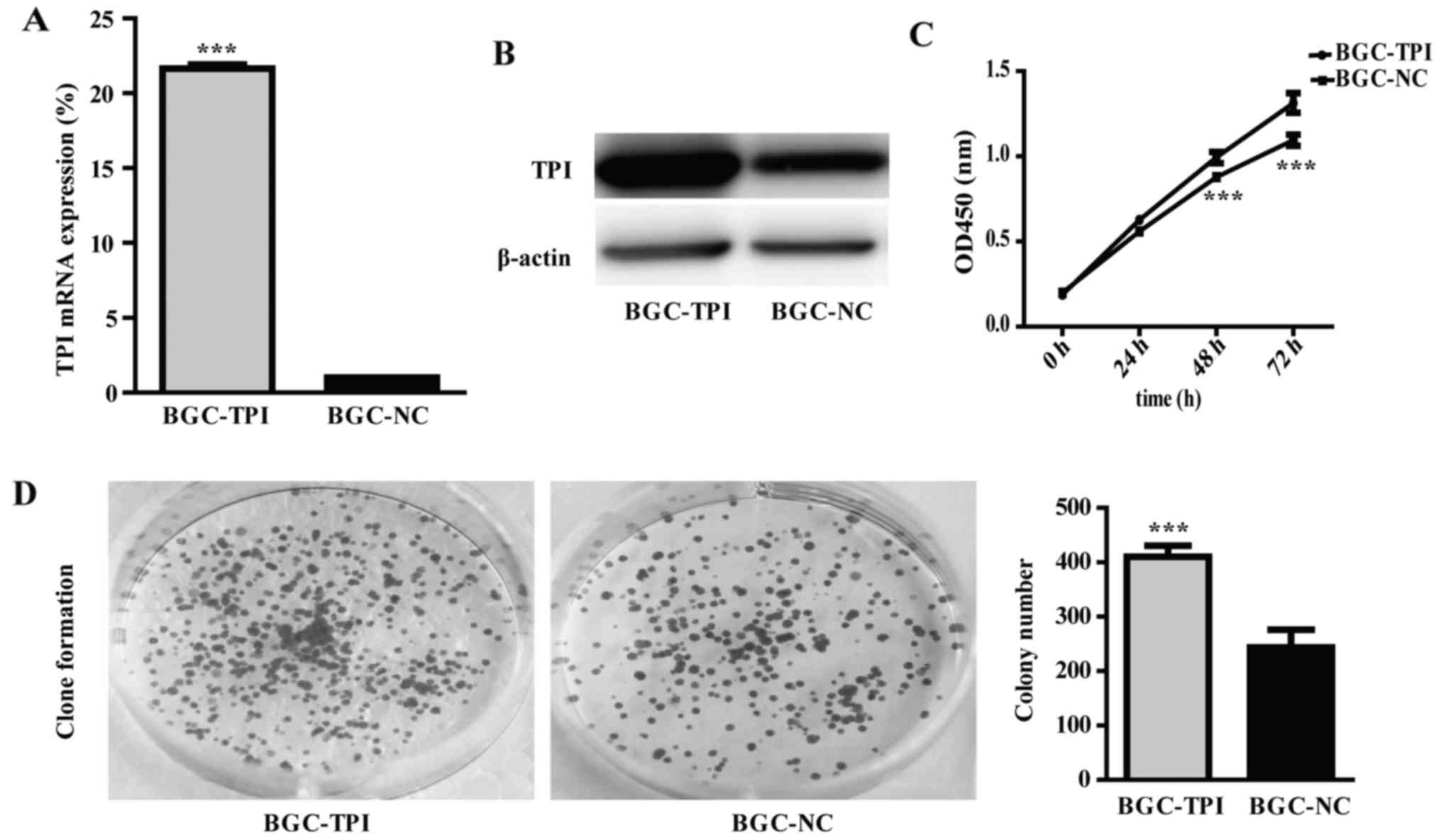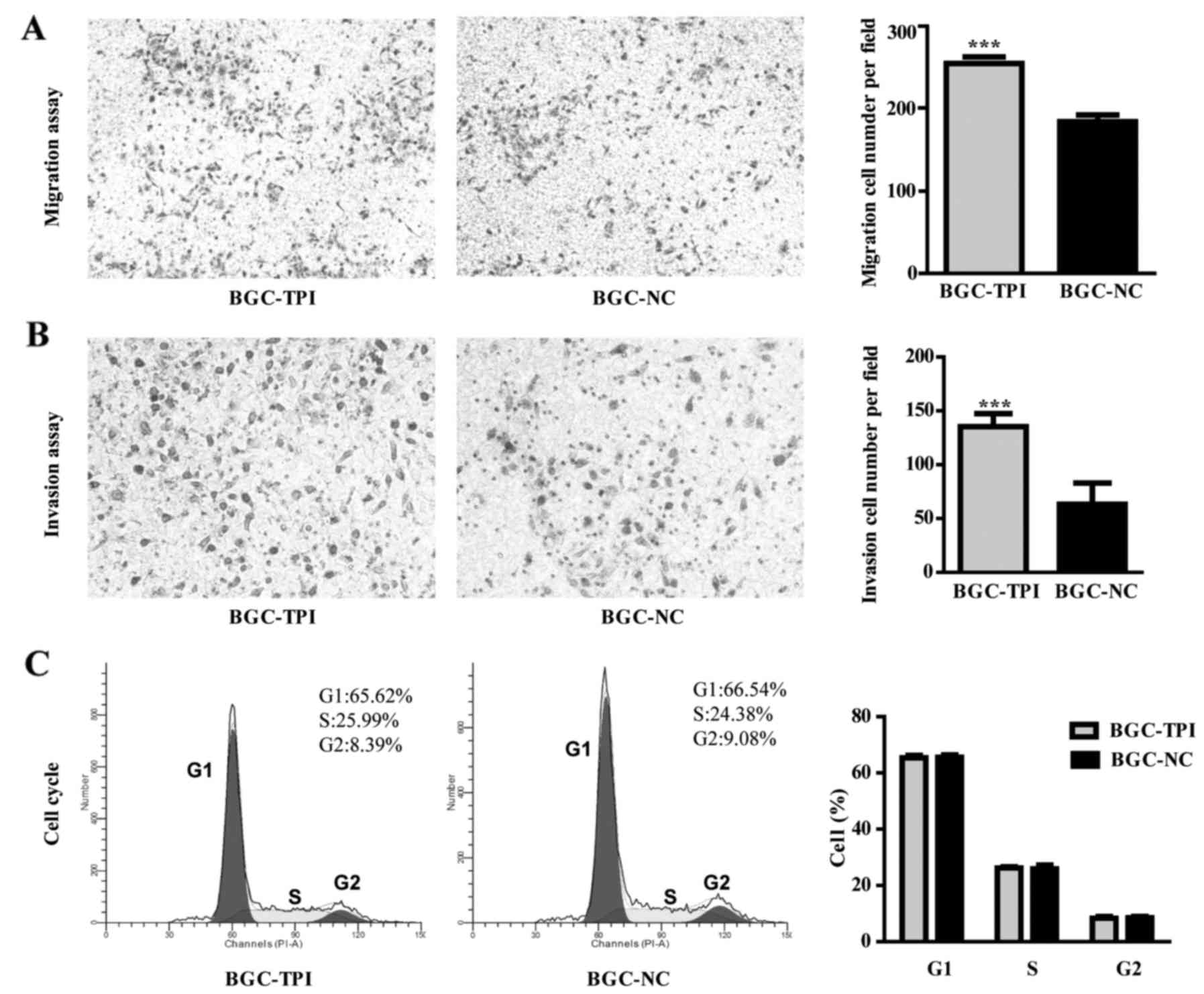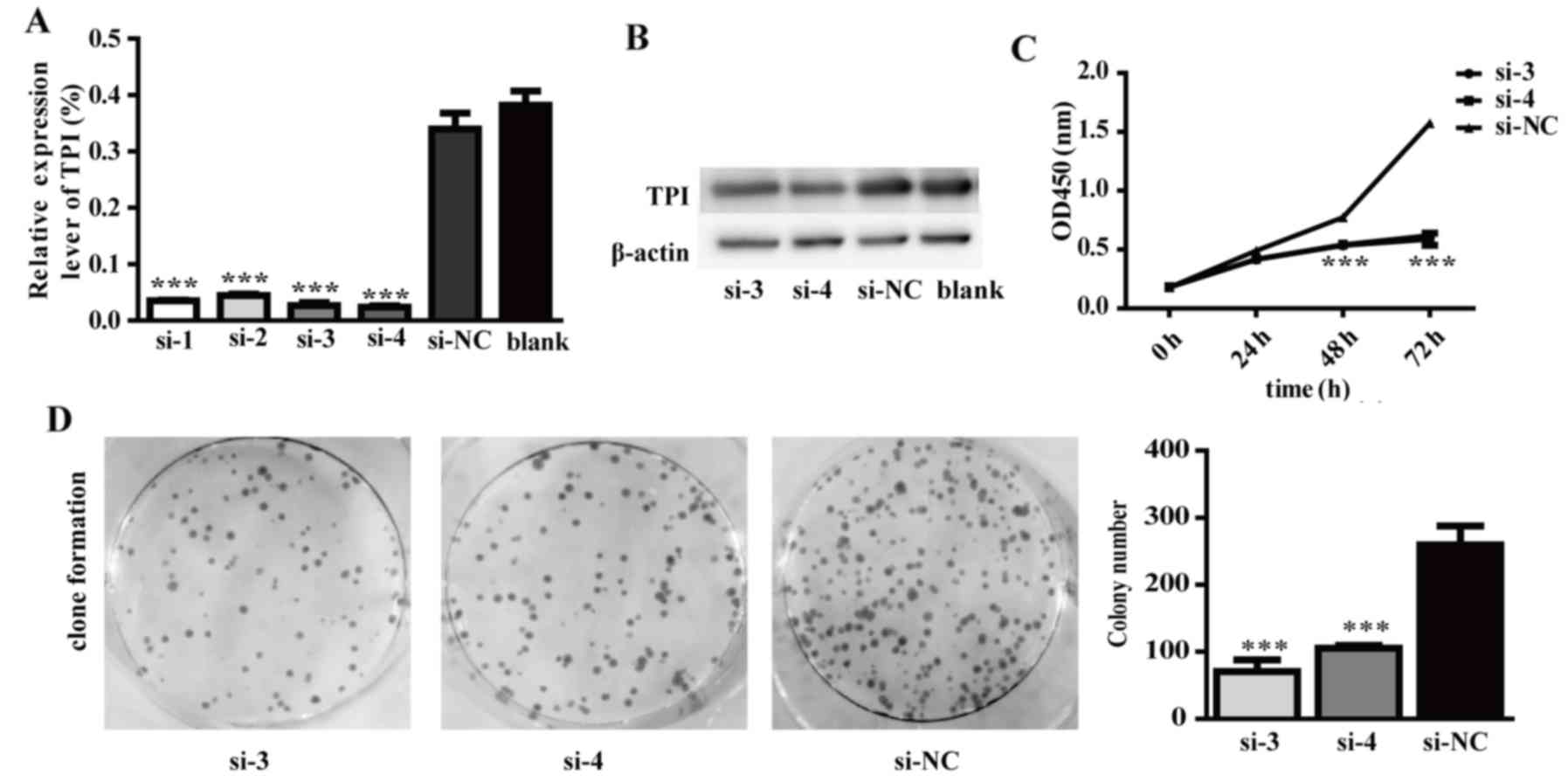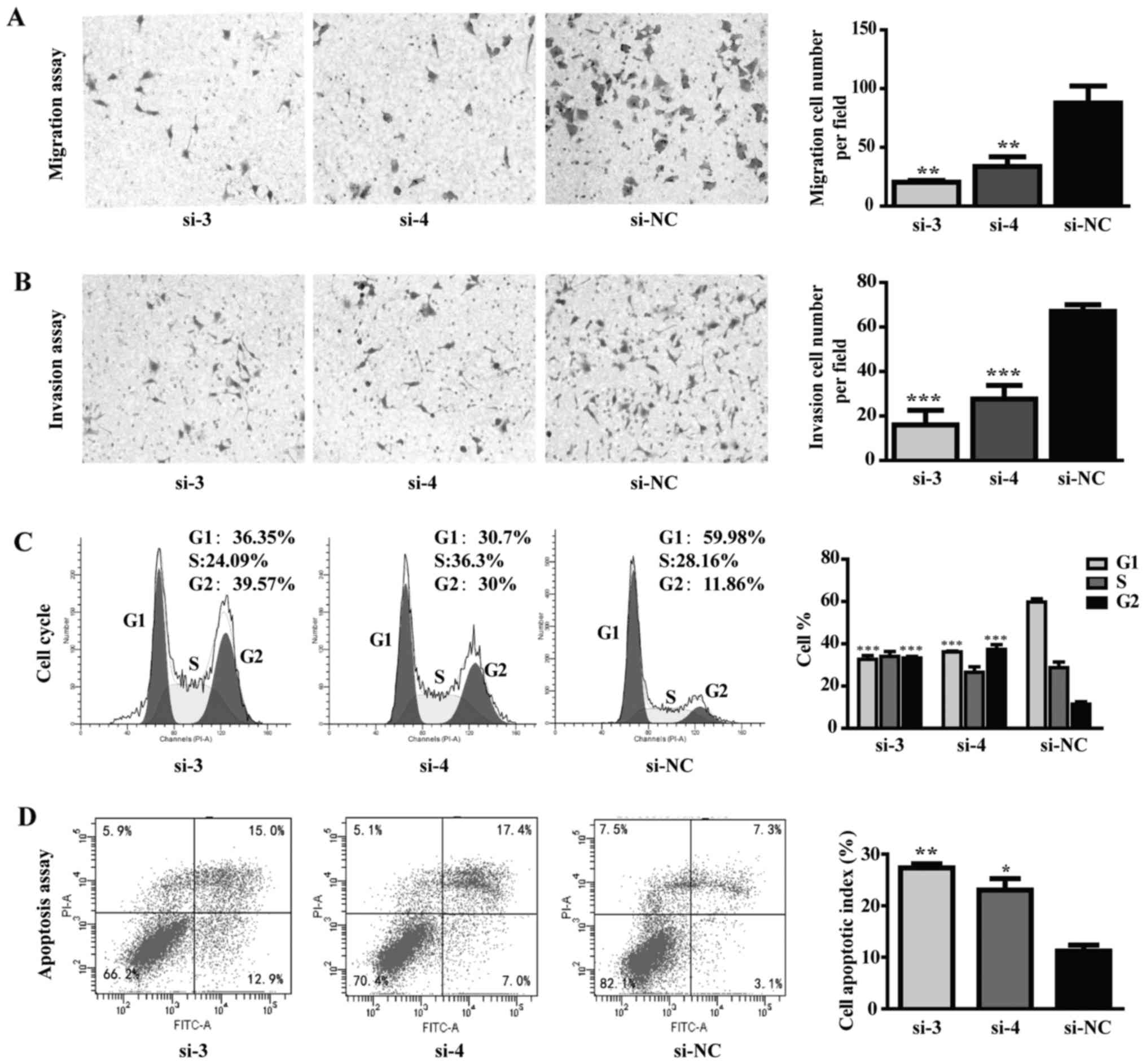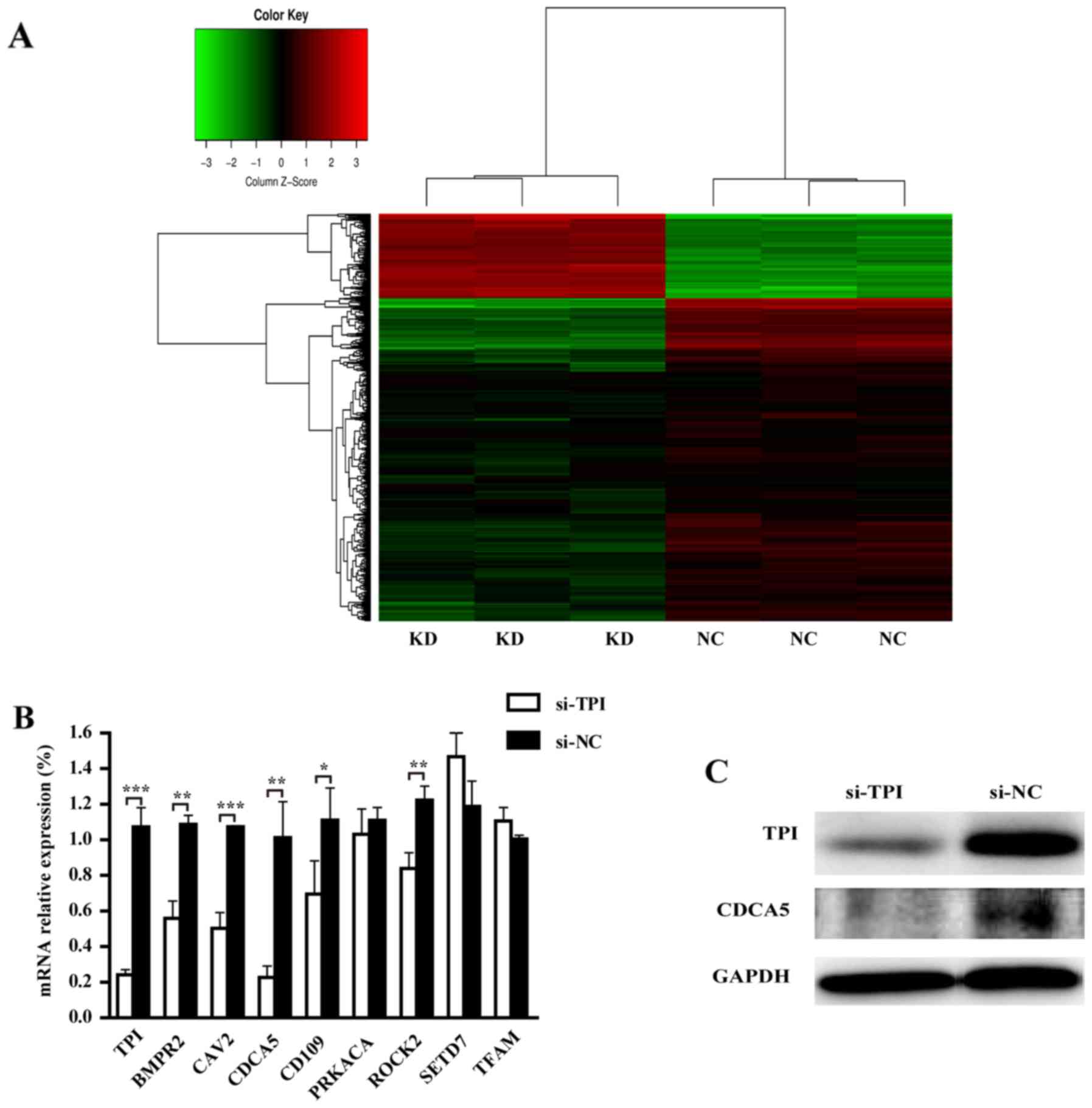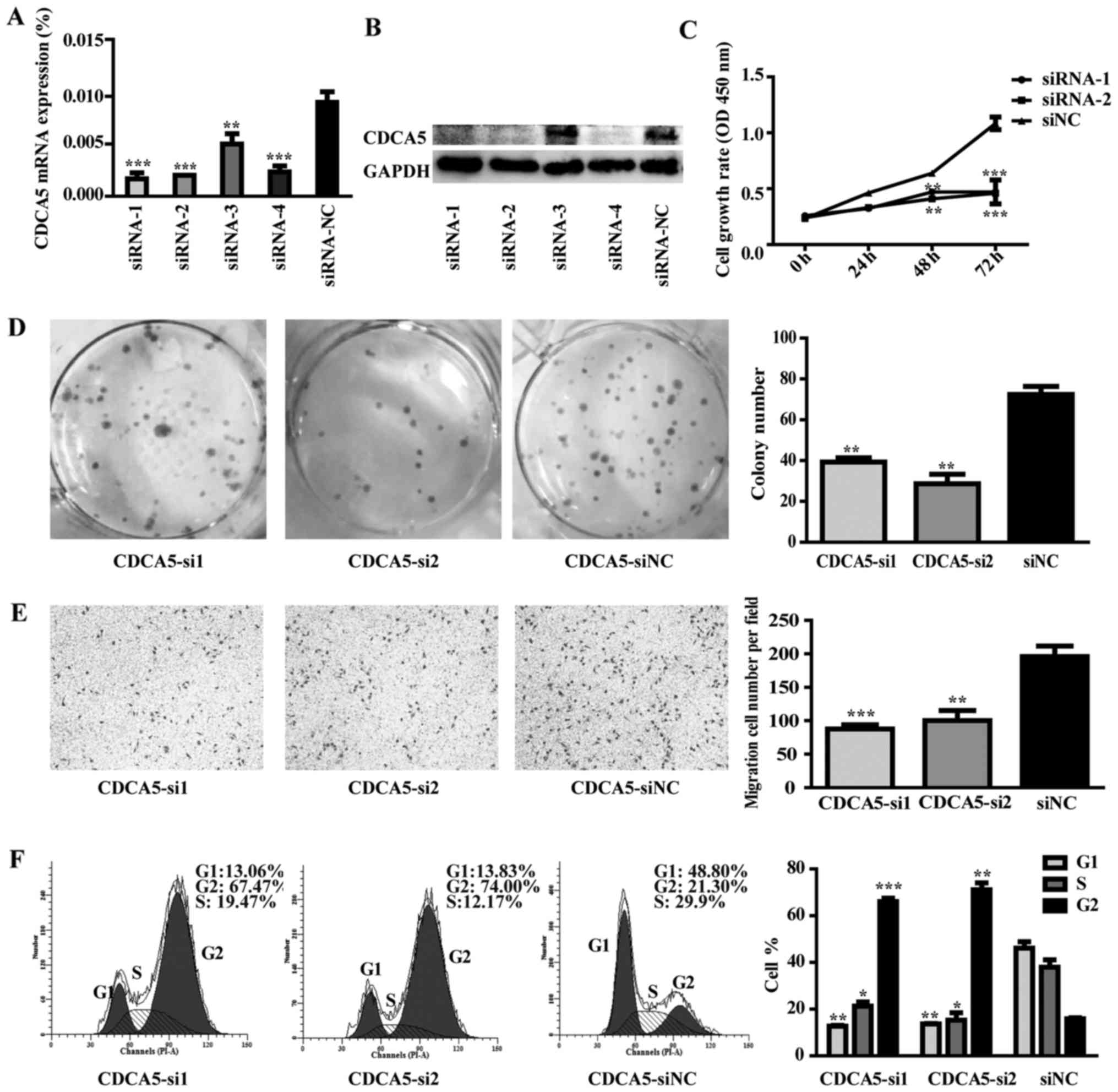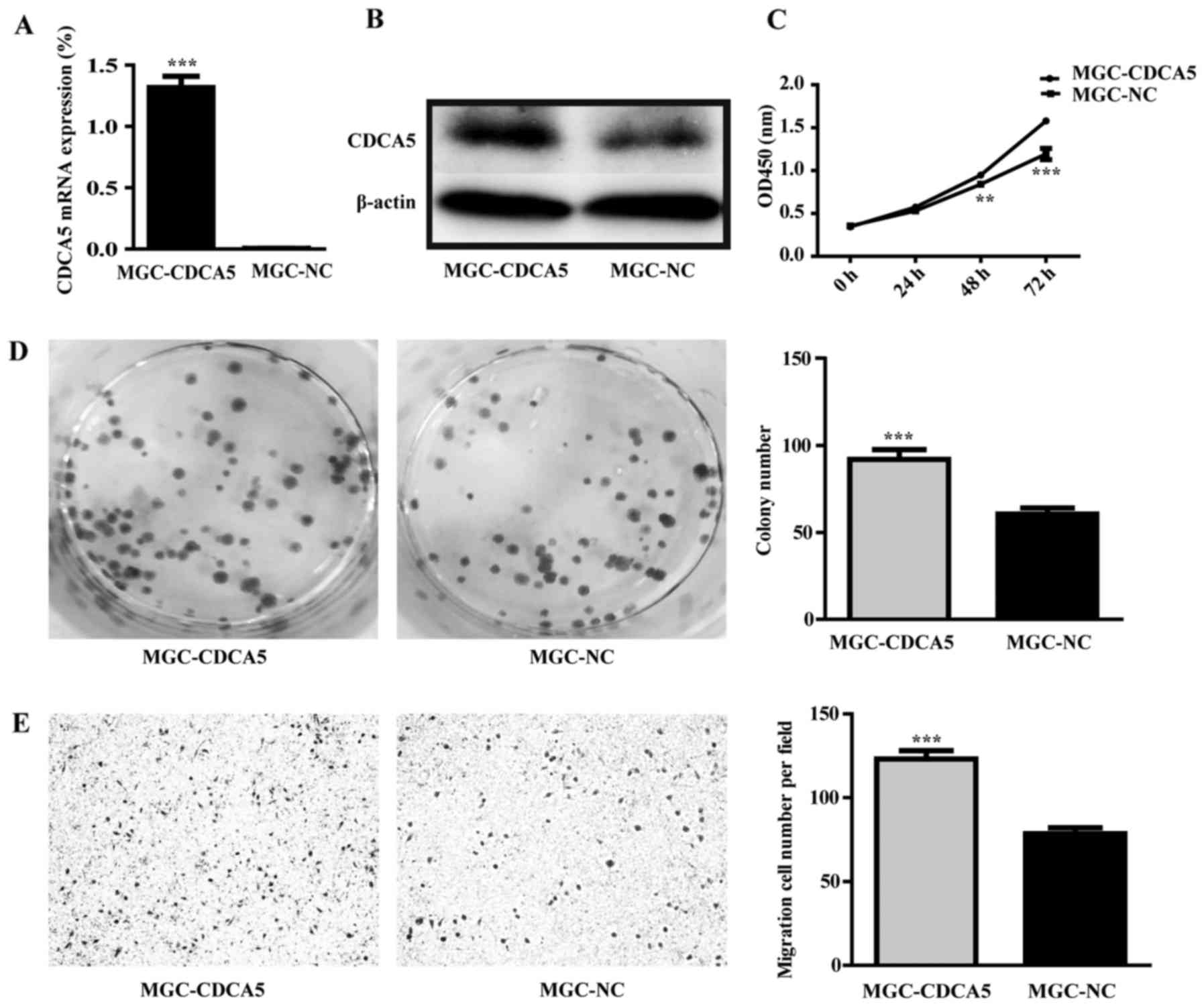|
1
|
Yan S, Li B, Bai ZZ, Wu JQ, Xie DW, Ma YC,
Ma XX, Zhao JH and Guo XJ: Clinical epidemiology of gastric cancer
in Hehuang valley of China: A 10-year epidemiological study of
gastric cancer. World J Gastroenterol. 20:10486–10494. 2014.
View Article : Google Scholar : PubMed/NCBI
|
|
2
|
Meng X, Wang X and Ding C: Advances in
lymph node metastasis of gastric cancer. Imaging J Integr Tradit
West Med. 13:90–92. 2015.
|
|
3
|
Maquat LE, Chilcote R and Ryan PM: Human
triosephosphate isomerase cDNA and protein structure. Studies of
triosephosphate isomerase deficiency in man. J Biol Chem.
260:3748–3753. 1985.PubMed/NCBI
|
|
4
|
Qi YJ, He QY, Ma YF, Du YW, Liu GC, Li YJ,
Tsao GS, Ngai SM and Chiu JF: Proteomic identification of malignant
transformation-related proteins in esophageal squamous cell
carcinoma. J Cell Biochem. 104:1625–1635. 2008. View Article : Google Scholar : PubMed/NCBI
|
|
5
|
Kim JE, Koo KH, Kim YH, Sohn J and Park
YG: Identification of potential lung cancer biomarkers using an in
vitro carcinogenesis model. Exp Mol Med. 40:709–720. 2008.
View Article : Google Scholar : PubMed/NCBI
|
|
6
|
Chen WZ, Pang B, Yang B, Zhou JG and Sun
YH: Differential proteome analysis of conditioned medium of BPH-1
and LNCaP cells. Chin Med J (Engl). 124:3806–3809. 2011.PubMed/NCBI
|
|
7
|
Linge A, Kennedy S, OFlynn D, Beatty S,
Moriarty P, Henry M, Clynes M, Larkin A and Meleady P: Differential
expression of fourteen proteins between uveal melanoma from
patients who subsequently developed distant metastases versus those
who did Not. Invest Ophthalmol Vis Sci. 53:4634–4643. 2012.
View Article : Google Scholar : PubMed/NCBI
|
|
8
|
Zhang ZQ, Li XJ, Liu GT, Xia Y, Zhang XY
and Wen H: Identification of Annexin A1 protein expression in human
gastric adenocarcinoma using proteomics and tissue microarray.
World J Gastroenterol. 19:7795–7803. 2013. View Article : Google Scholar : PubMed/NCBI
|
|
9
|
Lin Z, Zhang X, Liu Z, Liu Q, Wang L, Lu
Y, Liu Y, Wang M, Yang M, Jin X, et al: The distinct expression
patterns of claudin-2, −6, and −11 between human gastric neoplasms
and adjacent non-neoplastic tissues. Diagn Pathol. 8:1332013.
View Article : Google Scholar : PubMed/NCBI
|
|
10
|
Wang DG, Chen G, Wen XY, Wang D, Cheng ZH
and Sun SQ: Identification of biomarkers for diagnosis of gastric
cancer by bioinformatics. Asian Pac J Cancer Prev. 16:1361–1365.
2015. View Article : Google Scholar : PubMed/NCBI
|
|
11
|
Mikuriya K, Kuramitsu Y, Ryozawa S,
Fujimoto M, Mori S, Oka M, Hamano K, Okita K, Sakaida I and
Nakamura K: Expression of glycolytic enzymes is increased in
pancreatic cancerous tissues as evidenced by proteomic profiling by
two-dimensional electrophoresis and liquid chromatography-mass
spectrometry/mass spectrometry. Int J Oncol. 30:849–855.
2007.PubMed/NCBI
|
|
12
|
Roth U, Razawi H, Hommer J, Engelmann K,
Schwientek T, Müller S, Baldus SE, Patsos G, Corfield AP, Paraskeva
C, et al: Differential expression proteomics of human colorectal
cancer based on a syngeneic cellular model for the progression of
adenoma to carcinoma. Proteomics. 10:194–202. 2010. View Article : Google Scholar : PubMed/NCBI
|
|
13
|
Lew C Ritterson and Tolan DR: Targeting of
several glycolytic enzymes using RNA interference reveals aldolase
affects cancer cell proliferation through a non-glycolytic
mechanism. J Biol Chem. 287:42554–42563. 2012. View Article : Google Scholar : PubMed/NCBI
|
|
14
|
Thongwatchara P, Promwikorn W, Srisomsap
C, Chokchaichamnankit D, Boonyaphiphat P and Thongsuksai P:
Differential protein expression in primary breast cancer and
matched axillary node metastasis. Oncol Rep. 26:185–191.
2011.PubMed/NCBI
|
|
15
|
Wang JW, Peng SY, Li JT, Wang Y, Zhang ZP,
Cheng Y, Cheng DQ, Weng WH, Wu XS, Fei XZ, et al: Identification of
metastasis-associated proteins involved in gallbladder carcinoma
metastasis by proteomic analysis and functional exploration of
chloride intracellular channel 1. Cancer Lett. 281:71–81. 2009.
View Article : Google Scholar : PubMed/NCBI
|
|
16
|
Katayama M, Nakano H, Ishiuchi A, Wu W,
Oshima R, Sakurai J, Nishikawa H, Yamaguchi S and Otsubo T: Protein
pattern difference in the colon cancer cell lines examined by
two-dimensional differential in-gel electrophoresis and mass
spectrometry. Surg Today. 36:1085–1093. 2006. View Article : Google Scholar : PubMed/NCBI
|
|
17
|
Vander Heiden MG, Cantley LC and Thompson
CB: Understanding the Warburg effect: The metabolic requirements of
cell proliferation. Science. 324:1029–1033. 2009. View Article : Google Scholar : PubMed/NCBI
|
|
18
|
Shi JG: WRA: Whether the Warburg effect is
the reason, result and the treatment of opportunity for cancer?
Moden Oncol. 6:1459–1461. 2014.
|
|
19
|
Wei H, Guo L, Li L, Zhou Q and Wu Z:
Mechanism of Warburg effect and its effect on tumor metastasis.
Zhongguo Fei Ai Za Zhi. 18:179–183. 2015.(In Chinese). PubMed/NCBI
|
|
20
|
Zhang N and Pati D: Sororin is a master
regulator of sister chromatid cohesion and separation. Cell Cycle.
11:2073–2083. 2012. View
Article : Google Scholar : PubMed/NCBI
|
|
21
|
Chang IW, Lin VC, He HL, Hsu CT, Li CC, Wu
WJ, Huang CN, Wu TF and Li CF: CDCA5 overexpression is an indicator
of poor prognosis in patients with urothelial carcinomas of the
upper urinary tract and urinary bladder. Am J Transl Res.
7:710–722. 2015.PubMed/NCBI
|
|
22
|
Nguyen MH, Koinuma J, Ueda K, Ito T,
Tsuchiya E, Nakamura Y and Daigo Y: Phosphorylation and activation
of cell division cycle associated 5 by mitogen-activated protein
kinase play a crucial role in human lung carcinogenesis. Cancer
Res. 70:5337–5347. 2010. View Article : Google Scholar : PubMed/NCBI
|
|
23
|
Tokuzen N, Nakashiro K, Tanaka H, Iwamoto
K and Hamakawa H: Therapeutic potential of targeting cell division
cycle associated 5 for oral squamous cell carcinoma. Oncotarget.
7:2343–2353. 2016. View Article : Google Scholar : PubMed/NCBI
|















